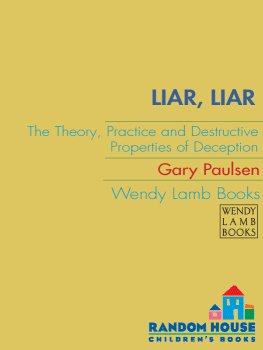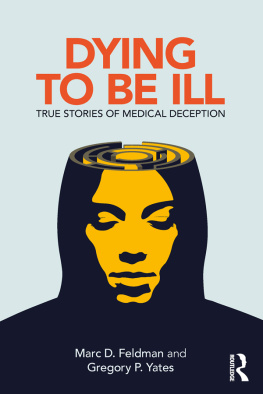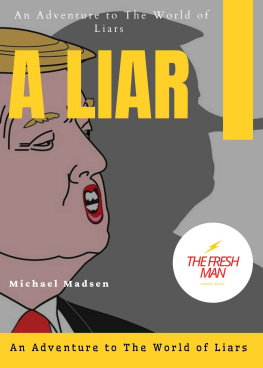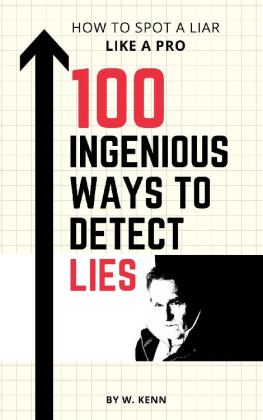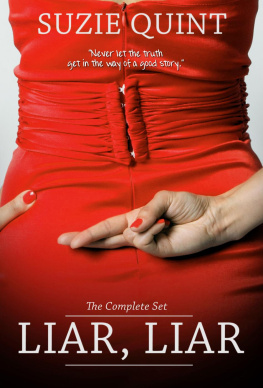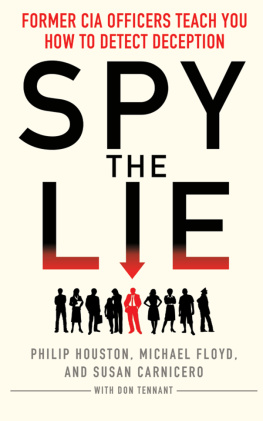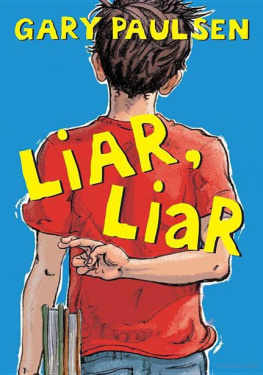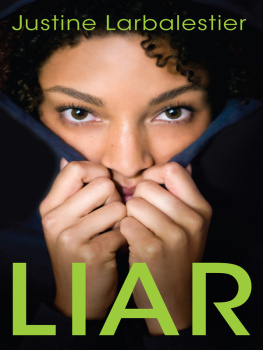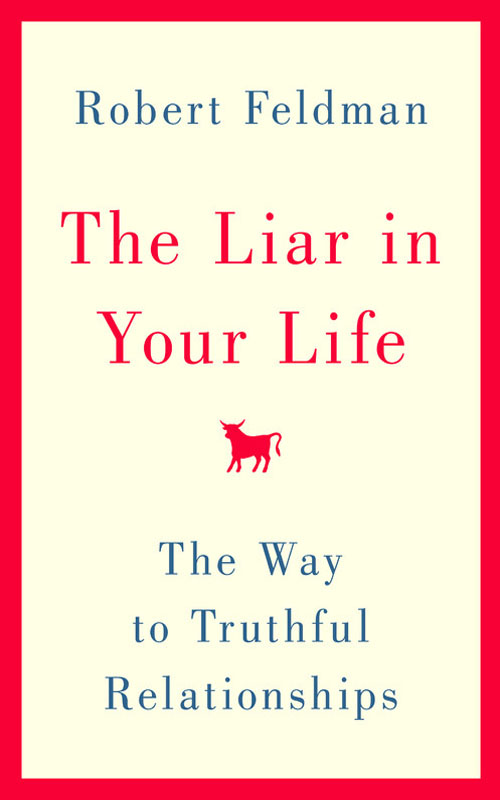Copyright 2009 by Robert Feldman
All rights reserved. Except as permitted under the U.S. Copyright Act of 1976, no part of this publication may be reproduced, distributed, or transmitted in any form or by any means, or stored in a database or retrieval system, without the prior written permission of the publisher.
Twelve
Hachette Book Group
237Park Avenue
New York, NY 10017
Visit our website at www.HachetteBookGroup.com
www.twitter.com/grandcentralpub
Twelve is an imprint of Grand Central Publishing.
The Twelve name and logo are trademarks of Hachette Book Group, Inc.
First eBook Edition: August 2009
ISBN: 978-0-446-55219-6
To Kathy
T he National Archives, housed in an austere building in downtown Washington, D.C., contains original copies of the founding documents of the United States of America: the Declaration of Independence, the Constitution, the Bill of Rights. These documents, with their talk of unalienable rights and the equality of all, established the country not just in a legal sense but in a moral sense, too. The United States would be, and still aspires to be, a nation where justice and truth prevail.
Yet I did not visit the archives several decades ago to learn more about the brighter moments in our nations past. Instead, I went in order to listen to scratchy tape recordings made secretly in Richard Nixons Oval Office, recordings of fraud and deceit that ultimately led to Nixons resignation from the presidency in the dnouement of the Watergate scandal. I believed, with the great conviction and zeal of a young assistant professor determined to understand the nature of lying, that I might be able to learn more about deceit by listening to the words of one of its most infamous practitioners.
However, when I listened to the Nixon tapes, I was frustrated that I could not determine from tone or intonation the moments when Nixon or his cronies were lying. Instead, to my ears, Nixons conversations and soliloquies were remarkable most of all for how unremarkable they were. There was talk of political appointments and strategies; there were flashes of insight and of paranoia. Overall, though, from what I could tell, the conversation was not much different from what I might have heard from recordings of any office, oval or not.
After subsequent decades of research and dozens of studies into the topic of deception, I now see that my frustration was misplaced. My failure to distinguish a Nixonian office from any other had less to do with my own inability to recognize lies and more with the fact that there is simply not much distinction to notice. The scale and impact of Nixons lies set him apart from probably every other president and surely most people generally. But what my research and the research of many others has shown is that lies occur regularly in every office. They occur regularly in every living room, in every bedroom; they occur regularly in conversations between strangers and conversations between friends.
In a sense, the very fact that the National Archives houses both the Nixon tapes and our most esteemed texts is paradigmatic. For in our society, the juxtaposition of venerated truth and notorious deceit is not just a matter of storage; it is a contradiction that plays out in our lives every day. While we talk a great deal about respecting the truth, while most of us regard the truth with genuine respect, the fact is that lies are common in American life, and in Western society in general. I went to the National Archives because I thought lies were hard to find. In fact, lying was then and is now nearly ubiquitous. If I wanted to listen to people lying, I could have listened in on practically any conversation between any two people.
Let me put it another way: there is no question mark at the end of this books title. There is a liar in your life. In fact, there are a lot of them. We encounter lies not only from the claims of presidents (I am not a crook or, more recently, I did not have sexual relations with that woman) or sleazy sales associates at the local car dealership (This SUV gets terrific mileage!); we also hear lies from the people we meet and interact with on a daily basis, including our family, friends, colleagues, and the strangers we encounter in the ordinary course of each day. Dishonesty is deeply ingrained in our everyday interactions and in our broader culture. As we will see, it colors our perceptions of who other people are and our perceptions of their behavior. It even affects how we perceive our own behavior.
The issue we need to confront is not whether people lie to usthey dobut how much and why. Just as importantly, we need to consider why were so prone to believing and even embracing the deception we hear from others, as well as the lies we tell ourselves. We need to explore why we view certain lies as harmless, while rejecting others as manipulative and shameful. And we need to consider how lies play out in broader societal contexts such as the business world, the media, and the new realm of digital communication. The primary purpose of The Liar in Your Life is to describe and explain the prevalence and consequences of lying in contemporary life, as well as to discuss the ways in which these lies affect us.
In this book, Ive focused on lying not in terms of its philosophical or moral dimensions but rather as an objective scientist describing what science tells us. Understanding lying is more a matter of discussing how it occurs, not whether it ought to occur. Hence, the emphasis is on clear explanation as opposed to principled judgment.
Yet it does not take an ethicist or a clergy member to recognize that lying exacts a tollon us as individuals, on our families and communities, and on society at large. Further, from whatever perspective one approaches deception, it is hard not to feel surprised, or even alarmed, at the discovery of just how much lying goes on in our lives. I think its safe to say that we all share the goal of building a more honest society. The surest way to do this is to come to grips withand confrontthe lies each of us face as individuals.
I hope The Liar in Your Life can be the first step in this process.
T hink about the last time you were lied to.
It may take you a minute. Most of the time when I ask people about when they were last deceived, they need a few moments before coming up with something. Eventually, they will recollect the story of the mechanic who overcharged for an unnecessary repair, or the date who promised to call the next day and was never heard from again.
Lies that took some kind of emotional or financial toll are the ones that generally spring to mind when we think about the deception we encounter. This makes sense. Events that are painful or dramatic tend to be memorable, and tend also to shape our impressions of the circumstanceslike being lied tothat surround them. My guess is that the lie you came up with as the one you most recently encountered involved a blow to either your heart or your wallet.
The reality of deception, though, is very different from what such painful memories lead us to believe. Our relationship to lying is far more intimate than the occasional encounter with a duplicitous mechanic or dishonest lover. Think again, more carefully, about the last time you were lied to. Perhaps you picked up your dry cleaning, and when you thanked the person handing it to you, he responded, My pleasurealthough both of you knew there was almost no chance that doing your laundry had given him any pleasure at all. Or maybe you were in line at the grocery store and you struck up a conversation with the woman in line ahead of you. Maybe she told you shed never had to wait in line so long before. Really?


